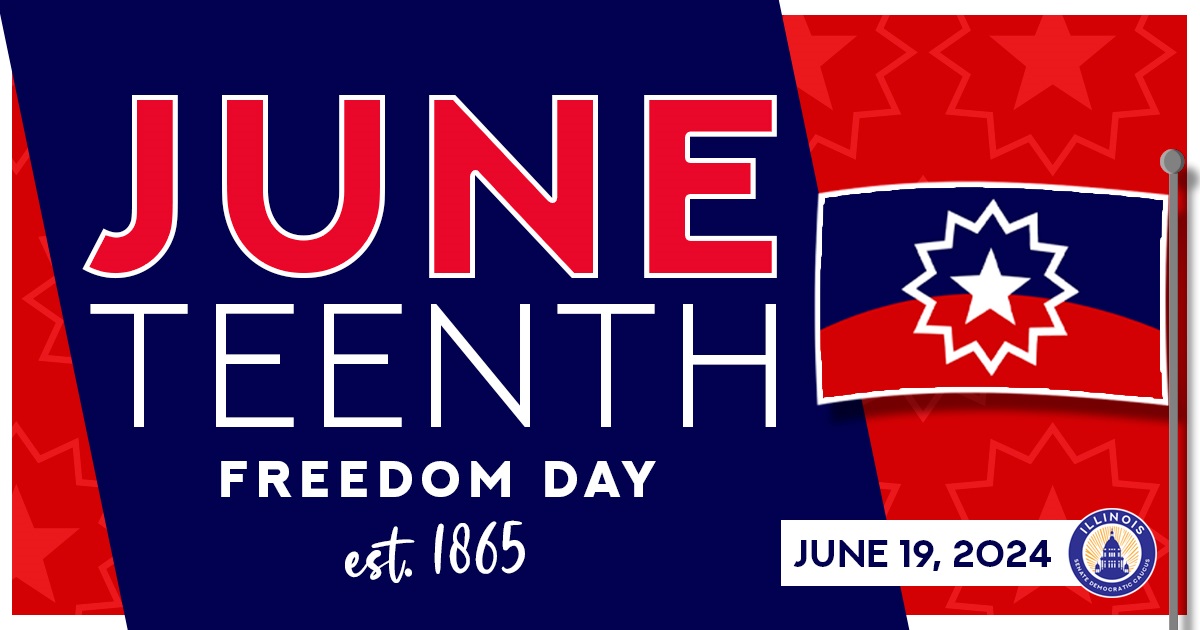
Illinois, a state rich with history and cultural significance, has played a crucial role in the journey toward African American liberation, a journey that Juneteenth commemorates. As a free state bordering slave states, Illinois was a critical player in the fight against slavery and for civil rights. The state’s unique position and its notable figures and events have significantly contributed to the spirit and history behind Juneteenth.
On June 19, 1865, Union General Gordon Granger arrived in Galveston, Texas and announced General Order No. 3, declaring all enslaved people free, in accordance with the Emancipation Proclamation issued by President Abraham Lincoln more than two years earlier. This day came to be known as Juneteenth and has since become a symbol of African American freedom and resistance.
Illinois was a beacon for the abolitionist movement. The state’s proximity to slave states like Missouri and Kentucky made it a critical region for the Underground Railroad, the secret network that helped enslaved people escape to free states and Canada. Cities like Alton, Quincy and Chicago became key locations in this network.
Several notable figures in Illinois’ history played significant roles in the abolitionist movement and the fight for African American rights, embodying the spirit of Juneteenth long before the holiday was widely recognized. Elijah P. Lovejoy was an abolitionist newspaper editor with a staunch anti-slavery stance, making him a target of pro-slavery mobs. John Jones, one of the first African Americans to hold public office in Illinois, was a successful businessman and a fierce advocate for civil rights. Harriet Tubman, although not an Illinois native, had work that deeply affected the state. Safe houses and routes through Illinois helped countless enslaved people find freedom, and Tubman’s legacy is celebrated throughout the state.
Juneteenth celebrations in Illinois have grown over the years, reflecting the state’s evolving recognition of African American history and culture. The first significant observance of Juneteenth in Illinois dates back to the 1870s, with African American communities organizing parades, festivals, and educational events to honor the day.
In modern times, Juneteenth was officially recognized as a state holiday in 2021 – and Congress quickly followed suit.
As Juneteenth continues to be celebrated, it serves as a reminder of the enduring struggle for equality and the importance of remembering and honoring our collective history.



